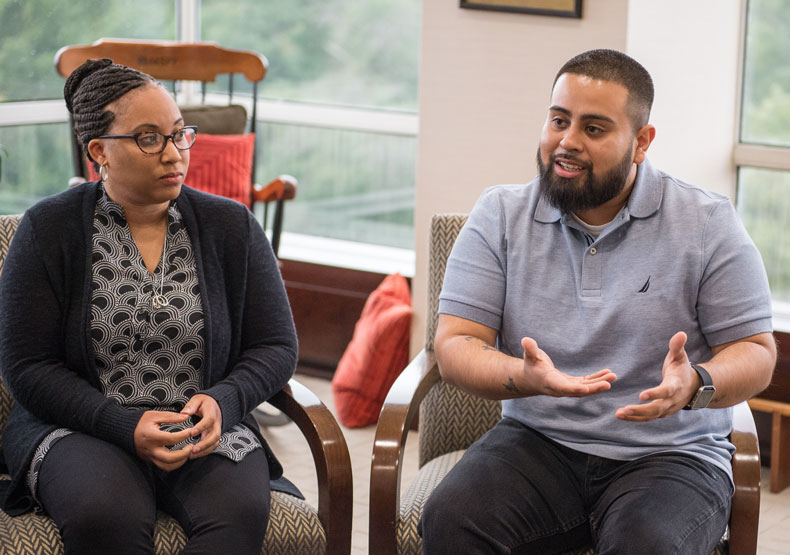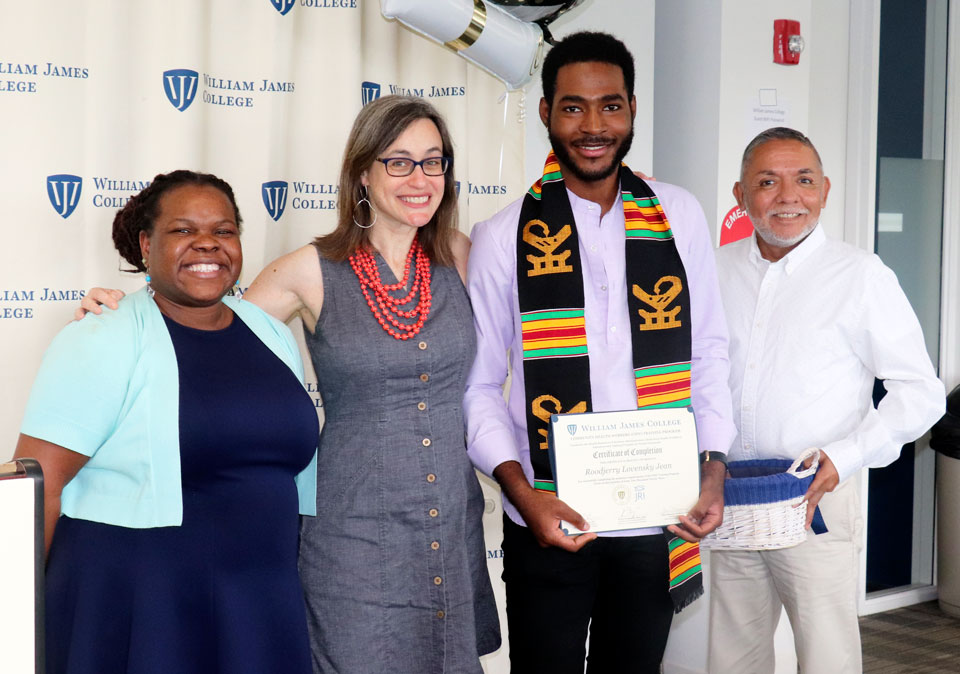The Center for Workforce Development
Center for Workforce Development
The country needs a highly trained, culturally responsive behavioral health workforce. To meet this need, we need you.
Workforce Development Initiatives at William James College bridge the needs of organizations, the professional, the profession, and the community by providing high-quality education and training programs that prepare students to meet the existing and growing demand for culturally responsive behavioral health care.

Academic Training and Concentrations
The Center for Workforce Development collaborates with the College's four academic departments in a variety of ways. In addition, the Center directly oversees the Behavioral Health Service Corps℠, the Community Health Workers (CHW) Training Program, and the Alcohol and Drug Education and Psychology Training (ADEPT) Center.
Bachelor of Science in Psychology and Human Services
Substance Use and Addictions Area of Emphasis
College-Wide Concentrations and Training Programs
Center for Multicultural and Global Mental Healh

Scholarships and Grant Supported Programs
Scholarship opportunities through the Center for Workforce Development, or offered in collaboration with academic departments, help to defray costs for William James students who commit to programs and studies related to the mission and aims of the College's workforce initiatives.
Scholarships
Mental Health Service Professional (MHSP) Demonstration Grant Program
Serving the Underserved Scholarship Program
Specialized Training and Academic Retention (STAR) Fellowship Program
Leaders in Diversity and Resilience (LDR) Fellowship Program*
Grant Supported Practicum and Internship Experiences
Child and Adolescent Mental Health Initiative (CAMHI)
HRSA Behavioral Health Workforce Education and Training (BHWET) Program
HRSA GPE/OWEP Grants Training Opportunities
Mental Health Service Professional (MHSP) Demonstration Grant Program

Career Ladder Programs and Professional Development
Career ladder programs combine paid professional experience with education and training to introduce young professionals to careers in behavioral health, or offer established professionals opportunities to advance existing careers.
Behavioral Health Service Corps℠ (BHSC) - Offered in Massachusetts and Rhode Island
Community Health Workers (CHW) Training Program
Men of Color Career Advancement℠ (MoCCA) Program
Skills Training for Equitable Pathways (STEP) in Behavioral Health
Leadership in Community Behavioral Health Fellowship
Teaching Faculty Fellowship*
Black Mental Health Graduate Academy
PATHWAYS Program
*The Teaching Faculty Fellowship is a collaboration between the Office of the Vice President for Academic Affairs, the Center for Workforce Development, the Office of Educational Development and Innovation, and the Office of Diversity, Equity and Inclusion.
Partnership Opportunities
Several of our programs invite employer-partner opportunities. If you represent a human services organization that shares our mission, our commitment to equity, and our dedication to teaching and employing culturally responsive providers, we'd love to connect. Email us at:
WORKFORCE@WILLIAMJAMES.EDU